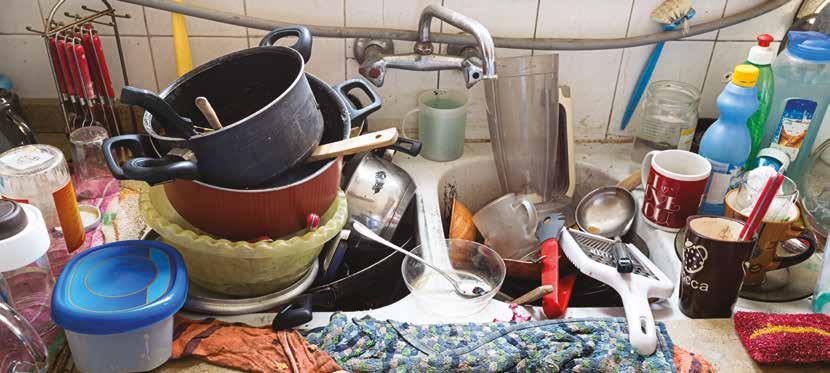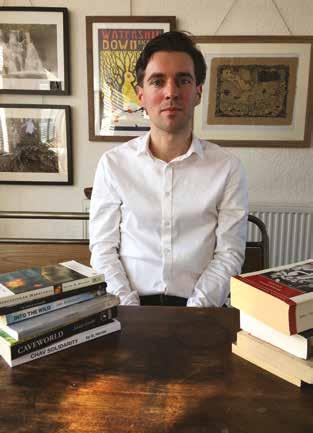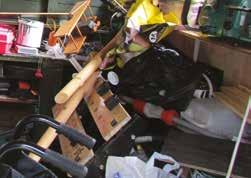
3 minute read
ARE YOU A HOARDER?
ARE YOU A HOARDER? Staying home to stay well is also a chance to put our house in order – or at least that’s the theory. By Diane Cooke F or some people pruning wardrobes and clearing cupboards can be emotionally overwhelming. So we don’t do it. Professional declutter expert Sian Pelleschi understands how clutter can easily become a burden. Her company Sorted! helps anyone from busy young families to older downsizers. But she says true hoarders may be living with depression, anxiety, grief. “Looking after a house has simply become too much. They know there’s an issue but don’t know how to resolve it and that adds to their anxiety.” She recalls a client who was distressed after being forced to move to a smaller home after her parents died. “The furniture completely filled the rooms. It was essential to create space for her to live in but it had to be done with understanding and empathy. We began by tackling the lounge and went from there.” Mersey Care psychiatrist Fabian Devlin (right) agrees that sensitivity is key. He’s a book collector and has around 100 that he’s yet to read. But Fabian is keen to make the distinction between collectors and hoarders. “Collectors catalogue items and put them in order. Hoarders simply collect,” he says. Some people are more inclined to collect, such as those who grew up in austere times, or refugees who left their countries with few possessions. Others may have a physical problem but are reluctant to ask for help so struggle on. Fabian feels it’s a personal decision with reason. “Everyone deserves to have their choices respected, and for their home to be safe and healthy.” Professional declutterer Sian Pelleschi

HE COULDN’T THROW AWAY ASANDWICH WRAPPER
Fabian Devlin recalls being asked to step in as part of the mental health crisis team in A and E to help when a patient with a rash on his body appeared defensive and distressed.
“We discovered he was living in a dangerously cluttered damp, home. His late mother was a hoarder and his grief was exacerbating his problems.
“The problem was he couldn’t discern what was worth keeping. He couldn’t even throw away a sandwich wrapper – he believed it could be reused. Everything was important to him either emotionally or because in his mind it had some monetary value. The support had to be extremely delicately handled.”
“As I spent time with him it became clear that his hoarding was a coping strategy. It gave him a distraction from the grief and a way to feel safe living on his own.”
While he was in hospital the gentleman was introduced to bereavement counselling and helped to socialise through a support club for men who struggle with their emotions. “Gradually, the hoarding became less important as he had other things to focus on. He made the decision to move into supported accommodation. When I saw him again he looked like a different person. He was jovial, interested in the news and engaging with the outside world again. It was great to see him living a very different life, in his own space but with more support around him.”


FOR HELP OR INFO:
• • • Help for Hoarders: helpforhoarders.co.uk Sorted! Decluttering and Organising. all-sorted.co.uk If you’re concerned about a relative or friend ask them about the issue. If they become defensive or can’t explain why they’re hoarding there maybe a deep rooted problem which they need help to resolve.
SIAN’S TIPS FOR DECLUTTERING
• Pick an area/space that will help reduce stress
• Make sure you allow plenty of time to work on that area
• Have a ‘keep’ pile, a ‘let go’ pile and a ‘not sure’ pile you can come back to
• Don’t dwell. Make a decision quickly and move on – you can always look again at the end
• Don’t panic. It’ll look worse before it looks better. Once you’ve got everything out and gone through it you’re on the home straight.










